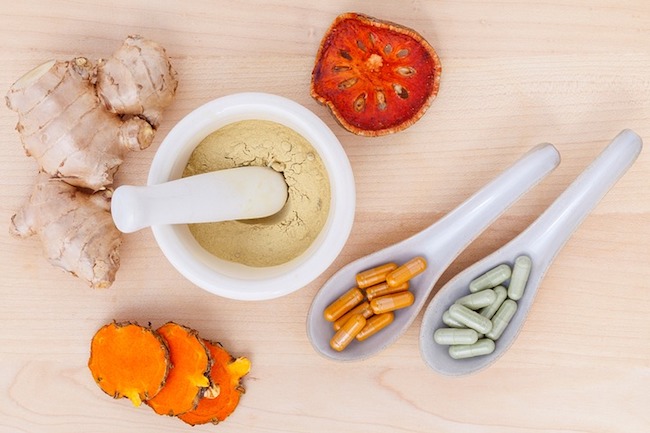Lower your cholesterol naturally with these foods and nutrients By Michael Alexander for SuperFoods
According to data from the Centers for Disease Control and Prevention (CDC), 73.5 million American adults, or more than 31 percent of the total adult population in the United States, have elevated levels of low-density lipoprotein (LDL), or bad cholesterol.
It’s a well-known fact that having high levels of bad cholesterol dramatically increases your risk of developing heart disease and other serious health issues, which is why people often go to great lengths to maintain healthy blood cholesterol levels.
However, in the event that you’ve been diagnosed with high cholesterol, it is likely that your doctor will tell you to take medications like statins, which are commonly prescribed to lower LDL cholesterol. Unfortunately, statins have been linked to several unpleasant side effects, such as headaches, dizziness, erectile dysfunction, general weakness and low platelet counts.
Fortunately, natural options, such as adding herbs and functional foods to your diet or taking nutritional and herbal supplements, are now available, and these options have been found to be particularly effective at lowering blood cholesterol levels.
If you’re interested in these natural supplements, here are some of them:
Niacin
Also known as vitamin B3, niacin is known to increase the levels of high-density lipoprotein (HDL), or “good” cholesterol, in the blood. This type of cholesterol helps remove bad cholesterol from your bloodstream, which means it can help you maintain a healthy cardiovascular system.
Phytosterols
Phytosterols, or plant sterols, are compounds that can be found in the cell membranes of plants. Their chemical structure is very similar to the cholesterol in humans.
When ingested, phytosterols compete with the cholesterol in the body and block its action, effectively reducing overall levels. You can increase your intake of phytosterols by eating plant-based foods like whole grains and nuts. (Related: Bring down high cholesterol levels naturally.)
Soluble fiber
Insoluble and soluble fiber are two types of complex carbohydrates that are known for their health-supporting properties. When it comes to maintaining healthy cholesterol levels, however, increasing your intake of soluble fiber is the way to go.
Aside from helping normalize blood cholesterol, studies have shown that foods like beans, oats, flaxseed and oat bran — all of which are high in soluble fiber — may also have other heart benefits, such as reducing high blood pressure and chronic inflammation.
Coenzyme Q10
Coenzyme Q10 — also known as CoQ10 — is a vitamin-like substance produced by the body to help generate cellular energy.
Aside from being a potent antioxidant, CoQ10 is also known for its ability to increase HDL cholesterol levels, which means it can help reduce your risk of cardiovascular disease (CVD).
In addition, CoQ10 has the potential to lower blood pressure without any significant side effects.
Ginger
A popular herb used in traditional medicine, ginger is highly valued for its ability to reduce inflammation. Recent studies also suggest that ginger can help lower total cholesterol and triglycerides levels and boost HDL cholesterol levels.
Aside from the above-mentioned foods and supplements, you can also eat the following functional foods to reduce your bad cholesterol:
- Soy protein
- Fenugreek
- Rosemary
- Garlic
- Flaxseed
- Red yeast rice
- Fatty fish
- Hawthorn
- Green tea
- Artichokes
- Barley
- Blueberries
Reducing bad cholesterol levels need not be a stressful or complicated process. Sometimes, it’s just as easy as eating a well-balanced diet and adding a few other healthy items and activities to the mix.




